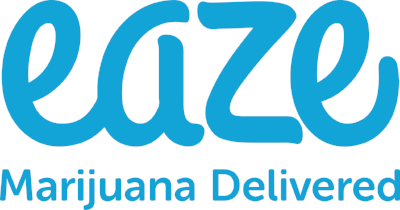
As you may or may not know, the California Bureau of Cannabis Control (BCC) released its highly anticipated new proposed regulations late on Friday sending anyone with any stake whatsoever in Cali’s massive marijuana industry scrambling to grind up the 162 page document.
Adding to the hysteria is the fact that the state is providing just 15 days for advocates and proponents of legal weed to provide official comments and suggestions to the BCC in response to the updated proposals. 15 days, starting on a Friday evening. . . this consumed many people’s weekend trying to make heads or tails of the revised language.
There are many interesting and controversial points worth discussing in the new regulations, but one that has sparked a major internal debate within the California cannabis industry is § 5032 Commercial Cannabis Activity
The meaty portion of the section reads as follows:
All commercial cannabis activity shall be conducted between licensees.
Licensed retailers and licensed microbusinesses authorized to engage in retail sales may conduct commercial cannabis activity with customers in accordance with Chapter 3 of this division.
Licensees shall not conduct commercial cannabis activities on behalf of, at the request of, or pursuant to a contract with any person that is not licensed under the Act. Such prohibited commercial cannabis activities include, but are not limited to, the following:
-
Procuring or purchasing cannabis goods from a licensed cultivator or licensed manufacturer.
-
Manufacturing cannabis goods according to the specifications of a non-licensee
-
Packaging and labeling cannabis goods under a non-licensee’s brand or according to the specifications of a non-licensee.
-
Distributing cannabis goods for a non-licensee.
The opening sentence is pretty straightforward – if you want to make money participating in the legal cannabis industry, you must follow the laws. There are different licenses for different stops on the supply chain – from cultivating, to processing and manufacturing, to transporting, distributing, and retailing. Everyone in that chain needs to hold a license.
If you have gone through the heavy burden of time and finances to get licensed, dealing with an unlicensed entity on any stop of that chain can have dire consequences.
The newest revised language appears to be aimed at a facet of the cannabis industry that circumvents the current licensing requirements in a term known as “white labeling”.
Simply put, white labeling is when one entity manufactures a certain good, but then sells it to a 2nd company who packages and brands it as their own. A good example of this is Nature’s Valley granola bars. They don’t grow their own oats or harvest their own honey next door to the conference room. They buy them from 3rd party farms and wrap it in their logo. This is a very standard practice in all other industries.
The problem with cannabis is, it is a federally illegal Schedule I drug, so it is not like any other industry and the people who are realizing that the fastest are benefitting the most from the rapid pace of changes being thrown at the California marketplace.
Section 5032 seems to squash the practice of unlicensed white labeling in an attempt to clamp down on what the state sees as tax – and regulation – evasion. They’ve discovered that they cannot enforce their rules on companies that have no BCC license at stake.
For those who have been able to crack the code of Cali cannabis and get established in the legal and incredibly costly market, the new language is a welcome addition to what will soon be the final say in Prop 64.
“Get licensed”
Their argument is cut and dry – if you want to make money in cannabis, get licensed or negotiate an ownership stake in the licensed company.
Opponents of the language point out that the convoluted process to “get” a license is the problem and that, so far, white-labeling has been a viable solution.
To get licensed, you have to have a commercial space – a building. This is no problem for big money corporate cannabis players like MedMen Inc., but has proven to be a major bottleneck for many of the small to midsize outfits that spent the past decade laying the groundwork for legal weed.
Real estate is expensive
Cannabis friendly real estate comes at an even higher premium due to a lack of compliant inventory.
Real estate transactions are particularly. . .difficult. . . when you’ve not been allowed to use a bank for the past ten years. . .
White label agreements have been a lifeline for companies who are actively trying to navigate the labyrinth of legalities and licensing while securing enough cash to properly get into the game.
An example of how this can impact the current cannabis industry:
If you have a mainstream nutrition company that invents a non-cannabis related product – say a brain health supplement – that pairs well with THC and you have entered into a branding agreement with a fully licensed and legal cannabis company, that agreement would no longer be valid under these new regs since the supplement company does not have a BCC-issued license to operate in the cannabis industry.
The short answer of “get licensed then” isn’t feasible if they are already established as an interstate or multinational company whose banking privileges could be threatened by such a move. So the deal dies. We’re not sure how that protected anyone or served to advance the industry.
The lackluster language of Section 5032 also opens a Pandora’s Box of what-abouts.
What about companies who manufacture point of sale systems that are used on every legal cannabis transaction?
What about people who sell cultivation equipment and supplies, or extraction gear, consultants, 3rd party marketers, construction workers like electricians and HVAC that service cultivation, processing, and manufacturing facilities?
Where is the line drawn?
Initial reactions by industry experts seem to revolve around the belief that the state does not intend to reach quite so far with the language in Section 5032.
But one target that seems to be in regulators’ crosshairs is the online cannabis delivery concierge app called Eaze.
Launched in 2014, Eaze has quickly grown into a dominant position in the California cannabis industry. All without a license from, or any oversight by, the state.

In February, BCC top dog Lori Ajax put the online service and its investors at ease when she stated that, “An internet platform wouldn’t need to get a license.”
Just a month later, however, she pulled an about face and said, “To conduct commercial cannabis activity in California, a business must obtain a state license. If the Eaze business model has changed from an internet platform application assisting licensees to a more direct role where they are conducting or directing cannabis activities, they may need a state license.”
Indeed, unlike Weedmaps that simply connects cannabis users to storefront dispensaries and delivery services, Eaze pinches the sack a bit, taking a transaction fee from every item sold through its connection.
Sections 5032 and 5414.1, if left in the final draft of regulations, will effectively end the business model of Eaze as it currently operates. To be clear, they will still be able to refer cannabis users to cannabis sources, they just won’t be able to extract their middleman fee unless they get licensed by the BCC.
The downgrade of Eaze, a direct competitor to brick and mortar dispensaries, would not upset a whole lot of Cali cannabis industry insiders, but most will admit that the BCC is using a chainsaw where they need to employ a scalpel.
DEATH & TAXES (& WEED)
Another “what-about” introduced by this new language pertains to 280E, the federal tax statute that will not allow legal, licensed cannabis businesses to write off non-cannabis related expenses like all other companies in all other industries are allowed to do.
Up until now, one workaround has been to form a partner company that never “touches the plant”, but instead handles marketing or apparel sales, or other ancillary services. Tax burden could then be shifted between the two companies, allowing some revenue to be taxed at the more standard/fair rates unassociated with the plant.
That loophole closes tight if Section 5032 remains as written.
Another gunshot in the foot of small to midsize companies trying to get established in the wild west environment that is legal weed.
One potential compromise that has been floated in discussions over the weekend is to create a new class of license to be distributed by the BCC.
This “branding” license of sorts would, in theory, be much less expensive and much less time-consuming to obtain and would be reserved for companies like the fictional nutrition company mentioned above.
If paired with the state’s proposed equity program, such a stepping stone license could potentially be a foot in the door to full licensure for small or disaffected companies who survived years of grey market prohibition but are still working to gather resources to get in the big game.
Again though, we’ve got less than two weeks to make our own suggestions for proposed changes – introducing a new license class in that amount of time may be a pipe dream.
There are many unanswered questions, such as: What happens if you are heavily invested in a branding agreement with another legal, licensed party and for whatever reason, they lose their licensing? How much hand holding must be done? Should you follow up to make sure their taxes are filed properly, or that their facility’s railings are painted an OSHA compliant color?
For now, the only safe guess is: Yeah, probably. Or hire a compliance officer, right?
It’s just more money. . .
As written, Section 5032 – like so much of Prop 64 – appears to be set up to give even more advantage to large corporations who can afford to keep so many varying services going under one massive stack of licenses.
The regulatory authorities that oversee California’s struggling rollout of “legal weed” have until December 3rd to release their final draft that will define state law for years to come.
The spirit of legal cannabis was cultivated over decades of prohibition in countless garage seshes and backyard grows. Stifling innovation with overregulation is a reality in most mainstream industries, and sadly, that is where cannabis is beginning to fit right in.
==========
To make your opinion known, written comments can be (respectfully) submitted up until November 5th, 2018 to:
Lori Ajax
Chief Bureau of Cannabis Control
2920 Kilgore Road Rancho Cordova, CA 95670
E-mail: BCC.comments@dca.ca.gov
Keep updated on all the latest news and updates in the Cannabis industry here at Beard Bros Pharms by signing for our Friday Sesh Newsletter here. Always Dank and Never Spam!
















